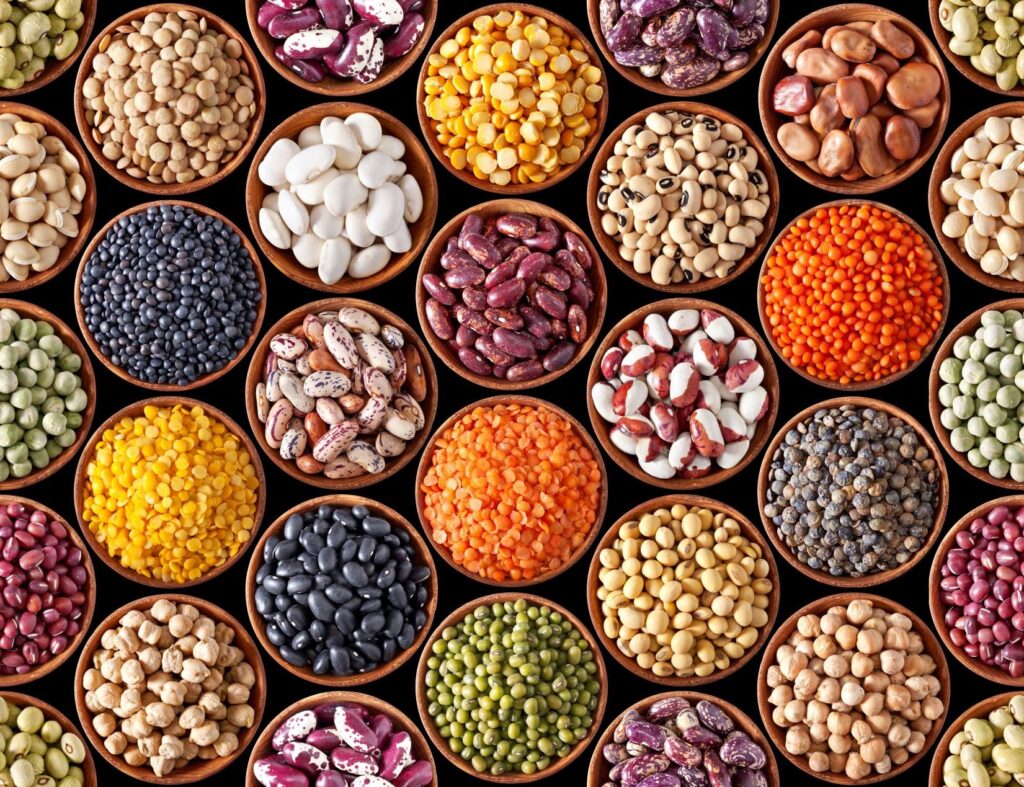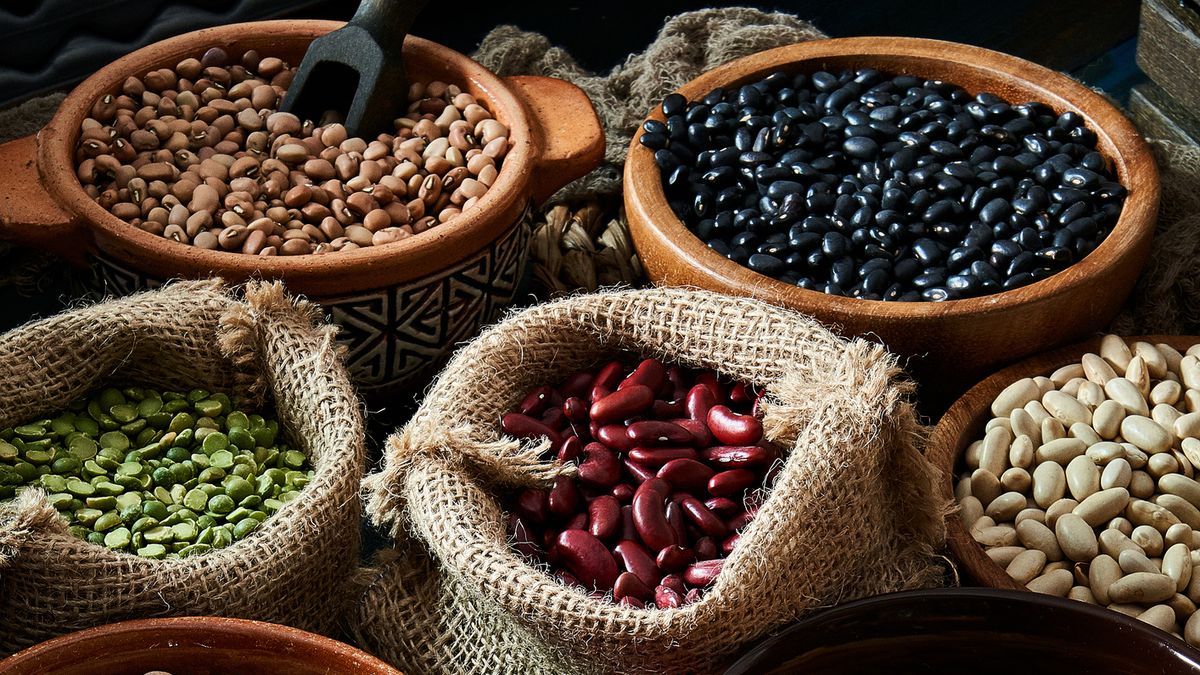Beans
What are beans?
Beans are the seeds of the annual bean plants belonging to the legume family (Leguminosae).Similar to other beans, the common bean is high in starch, protein and dietary fiber and is an excellent source of iron, potassium, selenium, molybdenum, thiamine, vitamin B6, and folic acid.
Dry beans will keep indefinitely if stored in a cool, dry place, but as time passes, their nutritive value and flavor degrade and cooking times lengthen.
New crop beans have a smooth, tight, close-fitting husk, while old crop beans are withered, slightly wrinkly and (in the case of haricot beans) discolored gray and no longer have good cooking properties.
Beans should be well formed and straight, bright in colour with a fresh appearance free of defects, and tender (not tough or stringy) but firm. The diameter of the pod, rather than length, is a good indicator of quality.
All pod beans should be harvested when the pod is bright green and fleshy, and the seeds are small and green. After that period excessive seed development reduces quality and the pod becomes pithy and tough, and loses its bright colour.


Health benefit of Beans
High protein content
Beans make an excellent source of protein for vegetarians and vegans. They are also lower in calories and saturated fat than some other protein sources, such as meat and full fat or low fat dairy products.
Good source of folate
Beans contain several vital nutrients, including folate. Folate is essential for overall health, to make healthy red blood cells, and help prevent neural tube defects in a fetus during pregnancy.
Antioxidant
Many researches show that , beans are rich in polyphenols, which are a type of antioxidant. Antioxidants fight the effects of free radicals, which are damaging chemicals that the body produces during metabolism and other processes.Free radicals can cause cell damage that can result in various diseases. Antioxidants help the body remove free radicals. In this way, antioxidant-rich foods, such as beans, can help protect the body from disease.
Heart Health
- People who consume beans regularly may be less likely to die of a heart attack or other cardiovascular problem. The authors of a 2017 meta-analysis suggested that one reason for the decrease in cardiovascular risk was that people had replaced higher fat animal meat proteins with beans.
Reduced risk of Cancer
Some studies have shown that beans act as antioxidants and anti-inflammatory agents. These effects could reduce the risk of cancer. Research published in 2015 analyzed whether beans might have antioxidant properties that fight intestinal cancer. The results suggested that black beans had the highest antioxidant activity.
Prevent fatty liver
Fatty liver happens when fats accumulate in the liver. It can develop alongside obesity, high cholesterol, high blood pressure, and other aspects of metabolic syndrome. Replacing higher fat animal proteins with beans is a good step towards better liver health
Controlling Appetite
When a person eats beans, the fiber and healthful starches they contain can help create a feeling of fullness and satisfaction. As a long-term dietary strategy, this could help prevent over eating and may lead to weight loss.
Improving gut health
Research has shown a variety of beans, especially black beans, enhance gut health by improving intestinal barrier function and increasing the number of beneficial bacteria. This may help prevent gut-associated diseases. Healthful gut bacteria also support immune system function and may promote weight loss. Beans feed the healthful gut bacteria colonies.